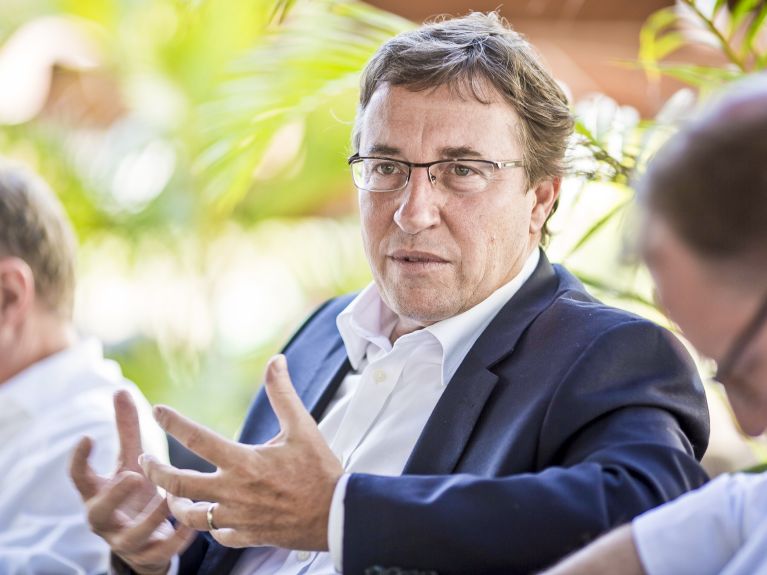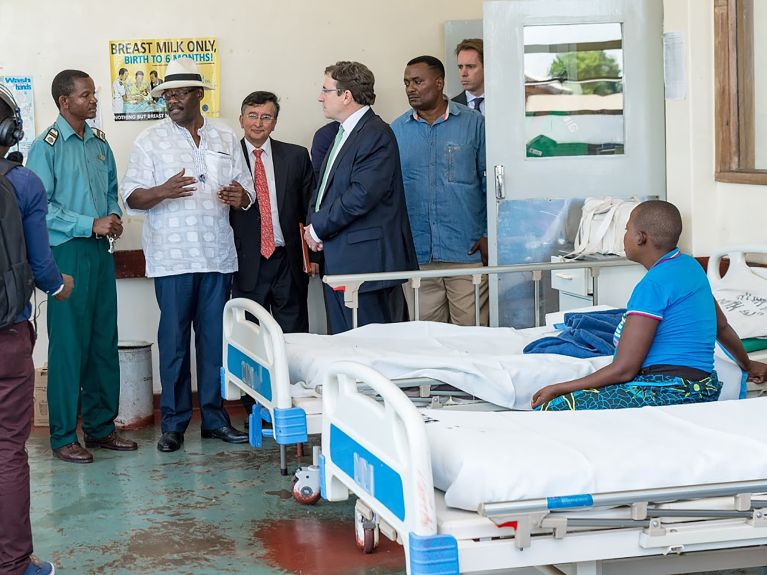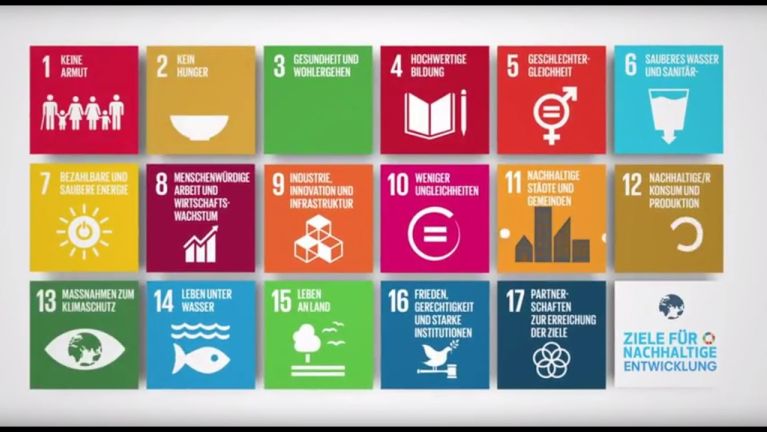“We will see significant progress”
Can the Agenda 2030 goals be reached? Here are the views of Achim Steiner, Administrator of the United Nations Development Programme.

How important was Germany for the inception of the Agenda 2030?
Germany played an active role throughout the whole process. It prepared a paper for instance that later became part of the EU position known as the five “Ps”: People, Planet, Prosperity, Peace, and Partnership. The five P's made it easier to communicate and understand the SDGs, and turned them into something the public could relate to.
Dieses YouTube-Video kann in einem neuen Tab abgespielt werden
YouTube öffnenThird party content
We use YouTube to embed content that may collect data about your activity. Please review the details and accept the service to see this content.
Open consent formIn order to reach the goals we have to come from „billions to trillions“. Is the international community already on the right track here?
The simple answer is no. We have to redirect the investments from a 20th century economy to a 21st century economy. That change clearly is not, yet, happening at the scale needed. Particularly the decoupling of our economies from emissions remains a major challenge that we have to achieve, and time is running out.
Let's be prepared that some countries may not achieve the Agenda 2030 goals.
From what we know today will the Agenda be met?
In many places and in terms of individual goals and targets: yes. But the reality in a world with over 190 nations is that things will not always move at the same pace. So let's be prepared that some countries may not achieve them. In general though I am sure we will see significant progress.
How important is Germany for the work of UNDP?
It has grown in importance in recent years, particularly in crisis response in countries such as Afghanistan, Lebanon, Iraq, Jordan, Yemen, or Libya. Here Germany has stepped forward with a significant amount of financing. It is among the top contributors to UNDP´s work in the field. I hope in the coming years, it will also increase its contributions to the core mandate of UNDP because funding projects in specific countries is one track, but supporting the organization as a whole is another one.
Germany is following an approach of interlinked security; it thrives for a combination of development issues and security measures. Does that align with UNDP objectives?
Yes, very much so. We live in an age where, in many parts of the world, we see tensions and conflicts that sometimes escalate into extremism. Responding solely with military measures is not enough because usually behind them lie reasons that often have to do with economic marginalization or discrimination. We have to look at the causes, not only the symptoms. If we do not address the social, the economic, and the environmental issues together, we are more likely to fail.
You are the highest ranking German in the UN system. How does that feel?
Being the highest-ranking German in the United Nations is both a great honor but also a responsibility. When you are appointed your nationality must become a secondary consideration since we are called upon to work as United Nations officials.


